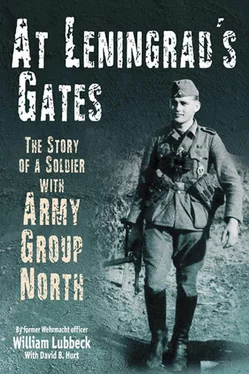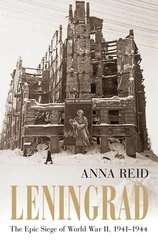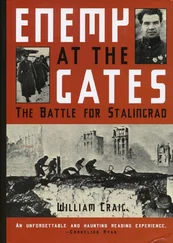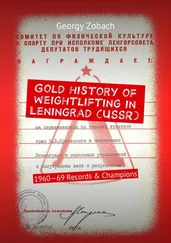It was understood that we risked denunciation to the police or the party if we expressed anti-Nazi views around the wrong people. Once the authorities identified you as holding anti-Nazi sentiments, they would make it difficult for you to keep your job or operate your business. They would isolate you within your community. If you openly opposed the regime and resisted these lesser pressures, you would almost certainly face arrest and imprisonment. Under a dictatorship, intimidation and fear are enough to force most people to keep their mouths shut.
Only a small group of top Nazi leaders dominated government policymaking, but the Nazi Party began to recruit many more people into its ranks as the regime increased its control over German society. Probably half of the new members joined for pragmatic reasons like maintaining their job or gaining advancement, while the other half joined out of ideological conviction. Of course, many people sought membership in the Nazi Party for a combination of reasons.
In our extended family, one of my uncles in the nearby village of Hohendolsleben became a Nazi Party official. He wanted to improve his situation as a farmer, but also believed in the Nazi ideology. My parents were very careful to avoid any discussion of politics when our families spent time together, but strongly disagreed with his views. Their son later volunteered for the SS and was killed at the age of 18 during the first week of fighting in France.
Although the higher echelons of the party included a number of educated people who believed in the Nazi ideology, the Nazis relied primarily on supporters among the less educated working class to fill its ranks. My family and most other farm owners in Püggen found it very difficult to accept the authority of these kinds of people when they became Nazi officials.
After putting on a Nazi uniform, a former hired laborer who was once a nice fellow quietly doing his job would suddenly start acting like a petty tyrant. While exercising great caution in expressing our political opinions around such people, we frequently grumbled about this phenomenon among ourselves. “This son of a gun was shoveling manure, but now he acts like a big shot. You have to watch out for him.”
If a farmer or businessman applied to the local government for some type of required permit, his request first had to obtain the written approval of the local Nazi Party organization before the government would consider it. If the farmer in question was not a member of the Party or at least friendly to it, Nazi officials would frequently make it difficult to acquire the necessary document. A direct appeal to the Party might resolve the problem, but would leave the citizen indebted and humiliated.
My family never publicly expressed our disapproval of the regime, but our unfavorable attitude was recognized by the local authorities. In response, they would sometimes burden our family with certain undesirable tasks. When one of the newly minted local Nazi Party officials demanded that my grandfather perform some unreasonable order, he simply refused to obey. Believing that he could intimidate this elderly man into submitting to his authority, the party official came to our farm a couple of days later and confronted my grandfather in front of the Altenteil (my grandparents’ home).
Instead of yielding, my grandfather grew angry. Grabbing a shovel, he threatened to chop the man’s head off unless he got off the property and stopped harassing him. If this Nazi had not backed down, I feel certain my grandfather would have tried to kill him. The Nazis rarely tolerated such resistance, but perhaps because of his age my grandfather suffered no punishment for his bold act of defiance.
Some years later on his eightieth birthday, my grandfather received a gift from the local company that purchased our family’s grain. Anticipating that the wooden box contained several bottles of wine, he reacted with disgust when it instead held a framed photograph of Hitler. Of all my family, his view of the Nazis was perhaps the most unrelentingly negative.
Before Hitler came to power, what I least comprehended was the depth of Nazi animosity toward Germany’s Jewish population. Because I viewed a Jewish person as simply being a German of a different religion and had never experienced problems with one, the Nazis’ hostility seemed irrational to me, as it probably did to most Germans.
While there were no Jewish families residing in Püggen, my family had long maintained a friendly commercial relationship with a Jewish businessman from Berlin. Until the mid-1930s, he regularly showed up at our farm with a truck to buy the apples from our orchards. The only other Jewish person I knew about in my youth was a German veteran of the Great War who had been wounded in battle and left with a metal plate in his head.
Beginning in 1933, the Nazi Minister of Propaganda, Josef Göbbels, unleashed a long and intense media campaign that attempted to dehumanize and vilify the Jewish population. A more educated man than his leader, Göbbels oratory was the equal of Hitler’s and highly effective.
In various ways, he and the Nazis sought to blame the Jews for exploiting Germans who were facing financial hardship in the Great Depression. More generally, they also alleged that the Jews conspired in one way or another to bring about most of Germany’s and the world’s other problems. Because most people tend to believe what they read and hear, the Nazi dictatorship’s monopoly over the media gave it a powerful ability to manipulate German opinion.
The relentless accusations gradually convinced large numbers of Germans to see the Jews as a threat to society. While not personally developing anti-Semitic feelings, I probably did grow more indifferent to what happened to Jewish people. As a result of the Nazi propaganda, many Germans like myself would react with apathy to the increasingly ruthless measures taken against the Jewish population in the years to come.
Chapter 3
PRELUDE TO WAR 1936–1939
ON MARCH 7, 1936, WE LEARNED from the radio that Hitler was ordering the army to march into the German Rhineland, a territory next to France, which the Treaty of Versailles had demilitarized. The commentator told us what Hitler was saying and described the deployment of German troops into the region. While the action only represented a reassertion of full sovereign control over German territory, there was a sense of pride among Germans at what was seen as a rectification of a wrong done to our country. Encountering no foreign resistance, the operation increased Hitler’s public support.
When we went to the cinema in the mid-1930s, we frequently watched the large Nazi Party rallies and parades on the newsreels that ran before the start of the feature film. My parents even encountered a display of Nazi pageantry firsthand when they attended the 1936 Olympic games in Berlin. My family and many others considered these spectacles simply another form of propaganda. Nonetheless, we perhaps naively thought that relations with our foreign neighbors would improve if they witnessed Germany’s renewed national strength.
Most people continued to feel a sense of bitterness toward France and Britain for Germany’s humiliation at Versailles and its isolation from the most civilized and developed group of countries of which Germany was naturally a part. We also felt threatened by what we saw as a barbaric and backward Communist regime in Russia. While Germany’s security justified an increase in the size of its military beyond the restrictive levels permitted under the Treaty of Versailles, Hitler would go further, and ultimately make Germany threatening to its neighbors rather than respected by them.
As the Wehrmacht expanded in size and increased the tempo of its training, we began to see more military activity. On September 21, 1936, the German Army conducted its largest military maneuvers since the Great War, an exercise in which my cousin Heinrich participated. In this operation, trucks were used to transfer a whole division from the Rhine River in the west to the Oder River in eastern Germany in a single night. Heinrich later told me that the division’s shortage of vehicles had required it to confiscate all the civilian trucks it could find in order to pull the mission off.
Читать дальше












